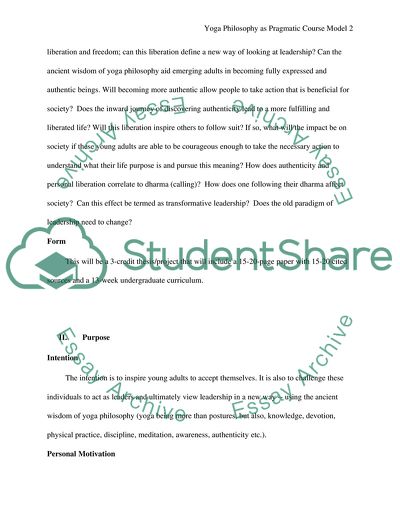Yoga Philosophy as Pragmatic Course Model Thesis Example | Topics and Well Written Essays - 1750 words. https://studentshare.org/philosophy/1733523-thesis-planning-questions
Yoga Philosophy As Pragmatic Course Model Thesis Example | Topics and Well Written Essays - 1750 Words. https://studentshare.org/philosophy/1733523-thesis-planning-questions.


